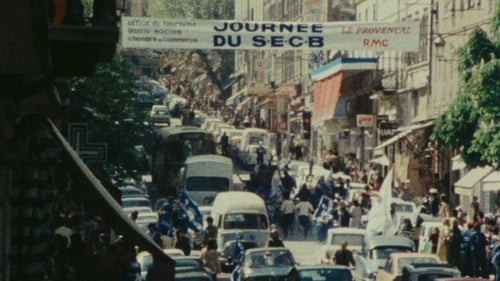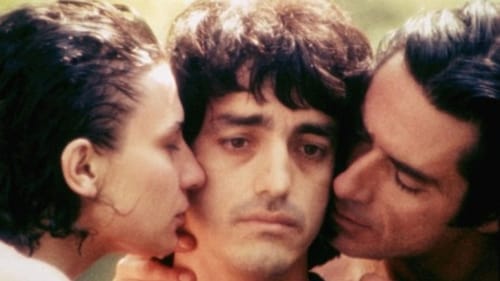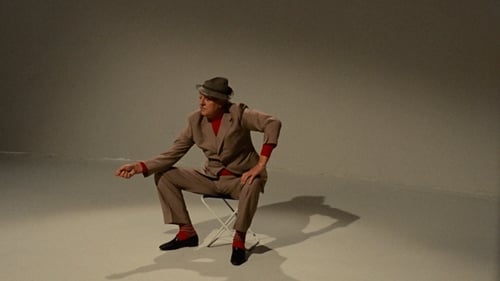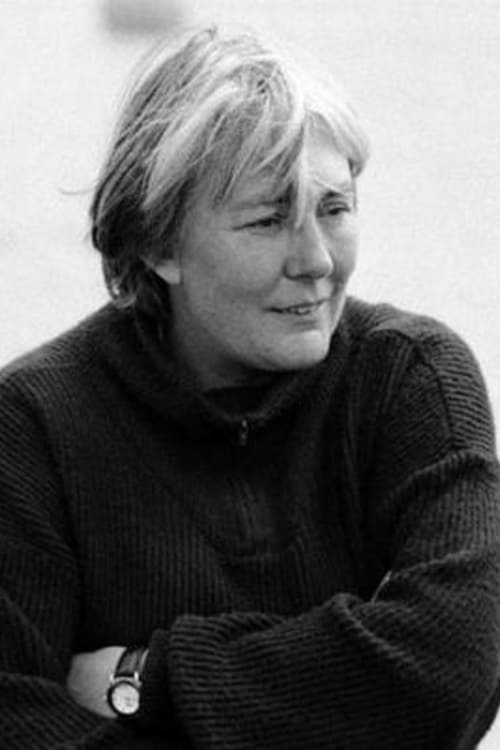Sophie Tatischeff
Nascimento : 1946-10-23, Neuilly sur Seine
Morte : 2001-10-27
História
Sophie Catherine Tatischeff was a French film editor and director.
Born in Neuilly-sur-Seine, Tatischeff was the daughter of Jacques Tati and began her career as assistant editor on her father's film Play Time (1967). She also edited Trafic (1971) and Parade (1974).
After Tati's death she produced a colour version of his 1949 feature Jour de fête using previously unusable colour film elements shot simultaneously with the monochrome stock. In 2001 she also re-constructed his 1978 short film Forza Bastia.
Tatischeff died in Paris from lung cancer in 2001. Tati wrote a screenplay for her in 1956, which appeared as the 2010 film The Illusionist.

Director
A bistro counter will decide the fate of two women. The first, Marie, the owner of a cafe for forty years in a Breton village, wants to realize her dream and go to the city. The second, Joelle, wants to leave town for the countryside.

Editor
Two-part documentary about French director Jacques Tati chronicles the evolution of the filmmaker's alter ego, Monsieur Hulot, through archival interviews, on-set footage, photos, and film clips.

Director
Two-part documentary about French director Jacques Tati chronicles the evolution of the filmmaker's alter ego, Monsieur Hulot, through archival interviews, on-set footage, photos, and film clips.

Editor
This film was presented to the Cannes Film Festival in the parallel section in 1978. It is unreleased.

Director
"Forza Bastia" is a 26-minute film documenting a UEFA Cup match between PSV Eindhoven and French club SC Bastia at the Furiani Stadium in 1978. Jacques Tati directed the piece at the request of friend Gilberto Trigano – the President of the Bastia club at that time. It was subsequently shelved and kept in storage until Tati's daughter Sophie Tatischeff eventually assembled the footage for release in 2002.

Writer
Sophie Tatischeff's short film set in the small town of Sainte-Sévère-sur-Indre, three decades after its use in her father's film 'Jour de Fête'. The conversation from a typical village bar is transplanted to a patisserie with particularly tempting tartlets: 'No reason for us not to have another' says one habitué; 'no more for me thanks,' says another. 'A shortbread at this time of day?' asks the woman behind the counter.

Director
Sophie Tatischeff's short film set in the small town of Sainte-Sévère-sur-Indre, three decades after its use in her father's film 'Jour de Fête'. The conversation from a typical village bar is transplanted to a patisserie with particularly tempting tartlets: 'No reason for us not to have another' says one habitué; 'no more for me thanks,' says another. 'A shortbread at this time of day?' asks the woman behind the counter.

Editor
"Forza Bastia" is a 26-minute film documenting a UEFA Cup match between PSV Eindhoven and French club SC Bastia at the Furiani Stadium in 1978. Jacques Tati directed the piece at the request of friend Gilberto Trigano – the President of the Bastia club at that time. It was subsequently shelved and kept in storage until Tati's daughter Sophie Tatischeff eventually assembled the footage for release in 2002.

Editor
A threesome becomes a foursome in this sensitive drama. The tale begins with the relationship between a recently divorced man and woman (from different marriages) and the bisexual they get involved with. At first all three are happy in their new arrangement, but then the divorced fellow suddenly leaves and those remaining in the relationship become quite tense. Fortunately the fellow returns with another, more conventional fellow. Eventually the three persuade him to join them.

Editor
For his final film, Jacques Tati takes his camera to the circus, where the director himself serves as master of ceremonies. Though it features many spectacles, including clowns, jugglers, acrobats, contortionists, and more, Parade also focuses on the spectators, making this stripped-down work a testament to the communion between audience and entertainment.

Editor
Em sua entrega final, Monsieur Hulot é contratado como diretor de design da empresa automobilística e acompanha seu novo veículo (um trailer com absurdos gadgets) para um salão de automóveis em Amsterdã. Naturalmente, a estrada é pavimentada com contratempos da era moderna “Trafic” de Jacques Tati.





